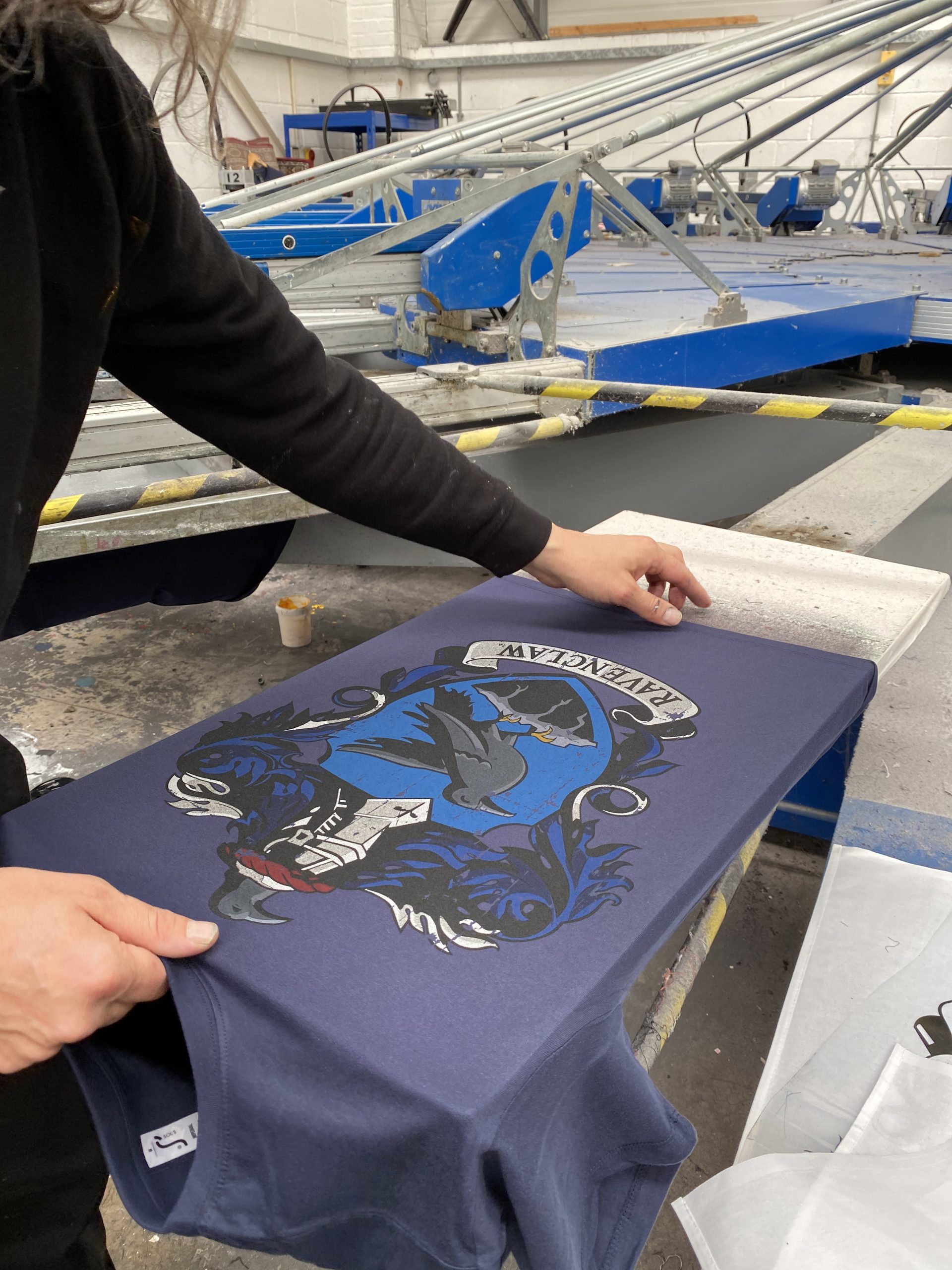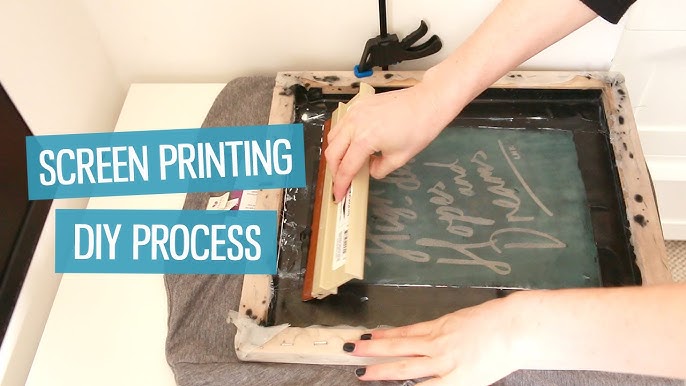ChatGPT said: How 10:9 Design Screen Printing can elevate your team spirit
The Important Overview to Recognizing Screen Printing and Its Versatile Utilizes
Screen printing has an abundant background that dates back to ancient times, progressing into an advanced technique made use of across different markets today. This overview checks out the details of the screen printing process, outlining its applications in style, home, and advertising design - 10:9 Design Screen Printing Texas. Recognizing these basics can open imaginative capacity for both commercial and artistic tasks. The adhering to sections will expose vital tips and strategies to boost one's screen printing endeavors
The History of Screen Printing
Although screen printing has roots that trace back centuries, its advancement shows the technological and imaginative improvements of numerous cultures. Stemming in ancient China, the strategy was originally made use of for embellishing textiles and later infect Japan, where it came to be indispensable to Ukiyo-e woodblock printing. The method shifted to Europe in the 18th century, where it got appeal among artisans and commercial printers. The development of picture emulsion in the 20th century transformed screen printing, permitting more complex designs and higher effectiveness. Artists like Andy Warhol further drove its popularity, utilizing the medium to produce legendary works that combined commercialism and fine art. By the late 20th century, screen printing had actually developed itself as a versatile method, employed in vogue, advertising and marketing, and art. Today, it remains to progress, incorporating electronic technology and expanding its applications across numerous markets.
The Screen Printing Process Explained
Screen printing transforms creative visions into substantial styles with a series of accurate actions. A picture is developed and then moved onto a screen, usually made of great mesh material stretched over a frame. A light-sensitive solution is put on the screen, which is subjected to light, solidifying in areas not covered by the image. After cleaning out the unhardened emulsion, a stencil is created.
Next off, the screen is placed over the substratum, whether it be fabric, paper, or an additional product. Ink is then pushed through the open areas of the pattern utilizing a squeegee, depositing the style onto the substrate listed below. This process can be repeated for several colors, calling for different screens for each and every hue. The published product is cured using heat to guarantee the ink adheres effectively, resulting in a long lasting, lively design prepared for usage.
Types of Screen Printing Techniques

Additionally, specialized techniques, such as discharge screen printing, remove color from the material to create softer prints, while foil screen printing uses metal foil to attain a glossy coating (10:9 Design Abilene). Each method provides distinct qualities, catering to numerous imaginative needs and production scales, inevitably expanding the opportunities within the screen printing domain name
Applications of Screen Printing in Various Industries

In addition, the signs and advertising fields use screen printing for producing distinctive displays and banners. This method allows for vibrant shades and detailed styles that record attention. In electronic devices, screen printing is utilized for applying conductive inks to circuit boards, essential for component links. Moreover, the home design market accepts screen printing to generate distinctive designs on fabrics and wall art. Overall, screen printing acts as a vital device throughout varied areas, enhancing items with customized and visually appealing graphics.
Tips for Successful Screen Printing Projects
While embarking on a screen printing job, careful attention to detail can considerably enhance the final result. First, selecting top notch products is crucial; this consists of the screen, discover this info here inks, and substrates. Making use of ideal mesh counts can affect ink deposition and detail resolution. Prep work is similarly important; extensive cleansing of screens and correct exposure times ensure crisp prints.
Next off, precise enrollment is important for multi-color prints. Utilizing positioning tools can assist achieve specific layering. Furthermore, screening prints on scrap products prior to manufacturing assists identify prospective issues without throwing away resources.

Frequently Asked Concerns
What Products Are Finest for Screen Printing on Textile?
Cotton and polyester blends are ideal for screen printing on material because of their longevity and ink absorption. Additionally, specialty fabrics like silk or canvas can generate unique textures and finishes, improving the overall design high quality.
Just how Do I Clean and Maintain Screen Printing Equipment?
To keep and clean up screen printing devices, one should frequently clean displays with proper solvents, check squeegees for wear, oil moving parts, and shop all products in a dry, dust-free setting to prolong their life-span.
What Are the Environmental Effects of Screen Printing?
Screen printing can have considerable ecological effects, consisting of chemical waste from solvents and inks, water usage during cleansing processes, and power intake. Environment-friendly products and sustainable methods are crucial for reducing these negative results.
Can Screen Printing Be Done at Home Properly?
Screen printing can be successfully done at home with the appropriate materials and strategies. Hobbyists can produce quality prints, though success depends on their ability level, tools, and understanding of the process involved.
What Are the Expenses Related To Starting a Screen Printing Business?

Starting a screen printing company includes expenses for tools, materials, and workspace. Initial costs normally vary from a few hundred to a number of thousand dollars, relying on the scale, high quality of machinery, and preferred production ability.
Screen printing has an abundant history that dates back to ancient times, developing into a sophisticated strategy made use of across different markets today. Another method, rotating screen printing, uses round displays, assisting in constant printing on fabric rolls, consequently improving efficiency for large-scale productions. In addition, specialty strategies, such as discharge screen printing, get rid of color from the textile to produce softer prints, view while aluminum foil screen printing applies metal foil to accomplish a shiny surface. In the fashion field, screen printing is widely utilized to develop vivid designs on apparel, enabling brands to showcase their unique designs. Cotton and polyester blends are perfect for screen printing on textile due to their resilience and ink absorption.